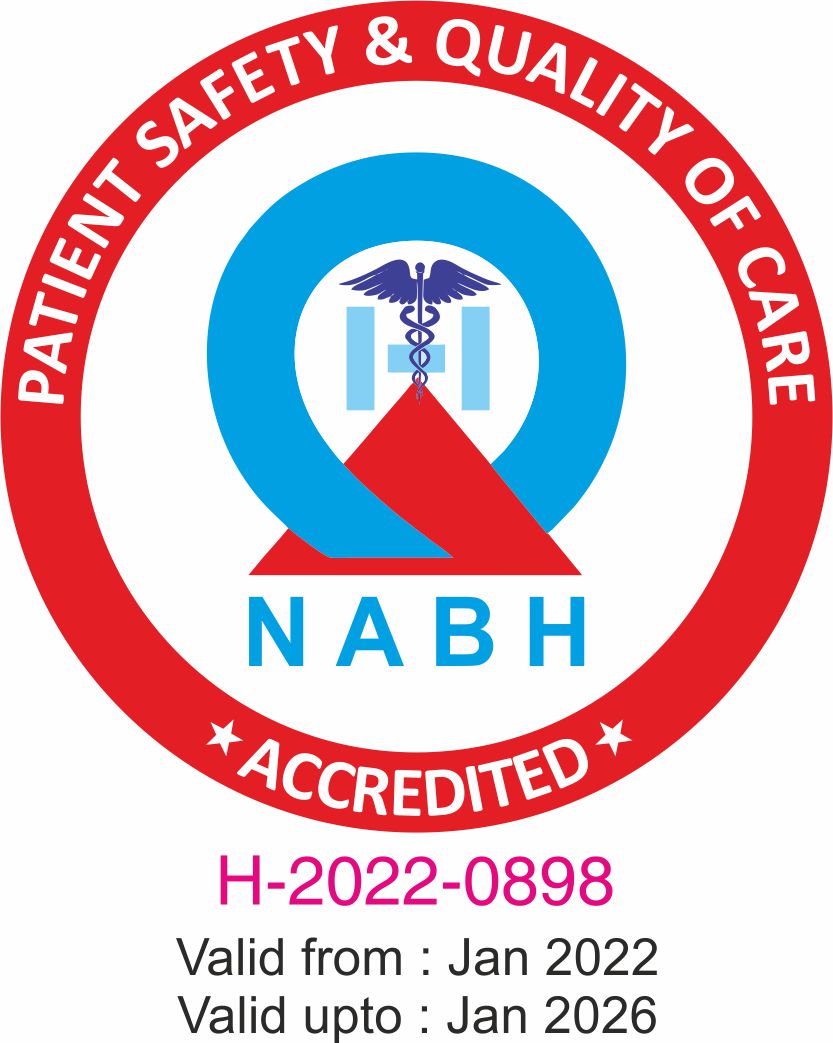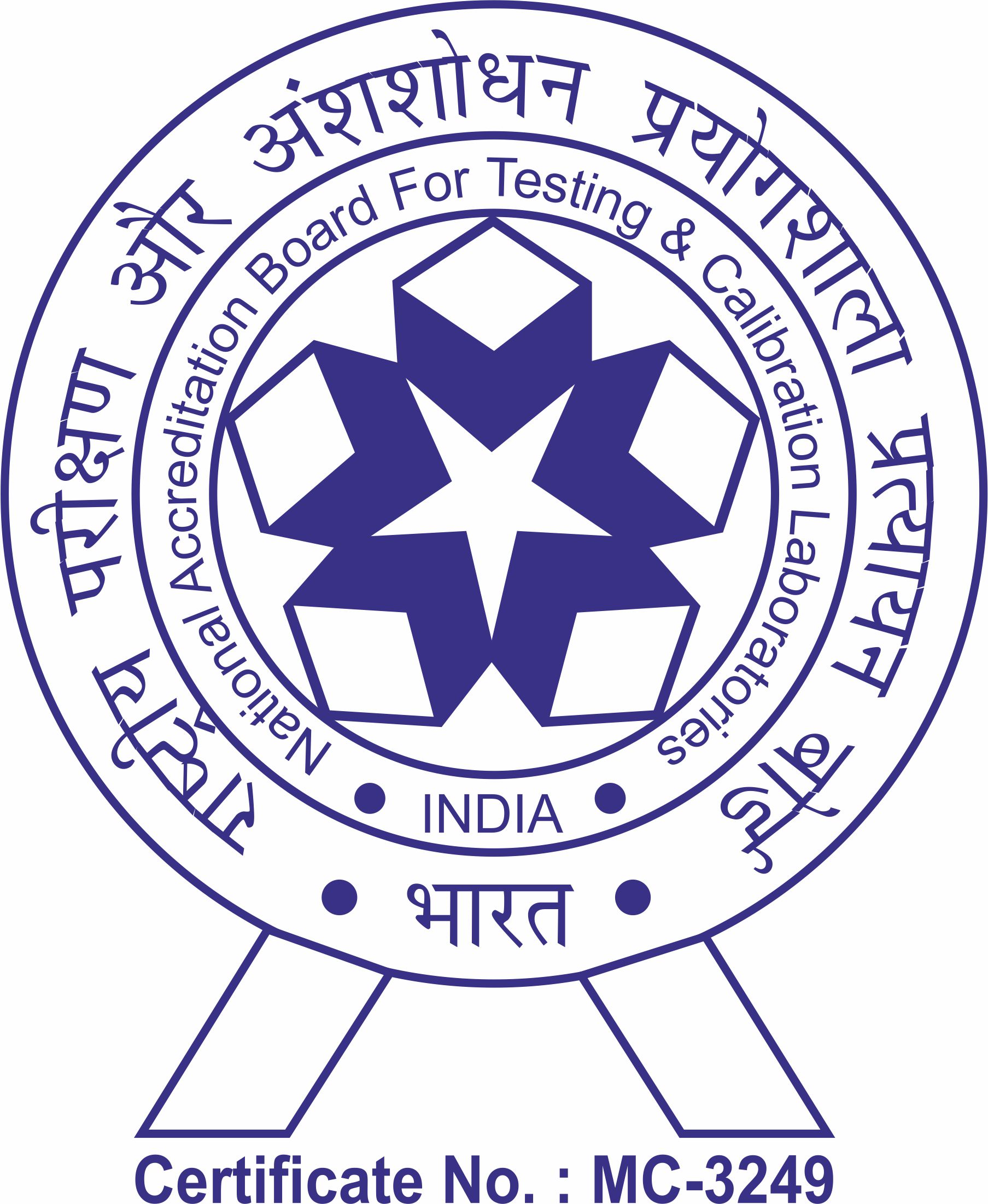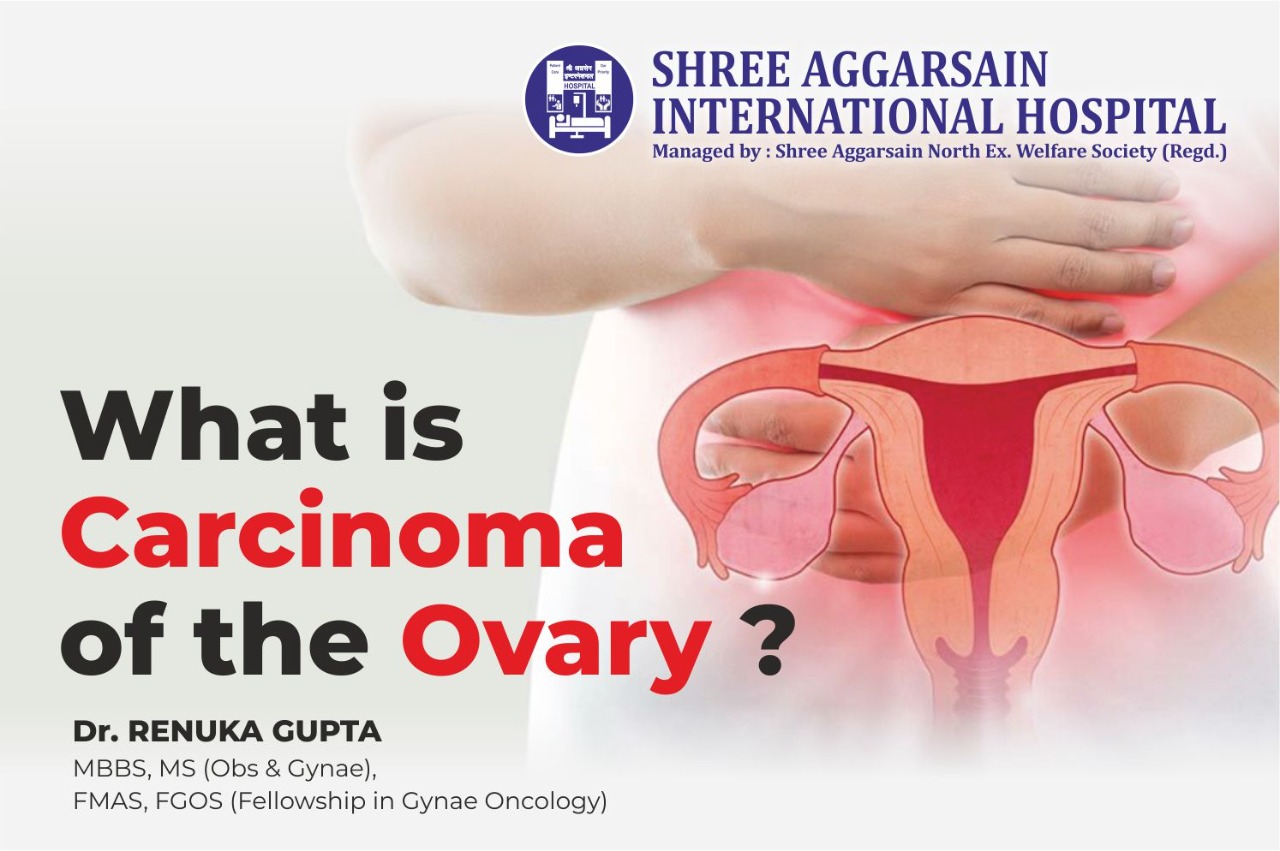Carcinoma ovary
Dr Renuka Gupta
Senior Consultant Gynae-oncology,
Shree Aggrasain International Hospital
Carcinoma ovary is common cause of cancer death in women worldwide. Ovarian cancer can occur at any age. In perimenopausal and postmenopausal lady epithelial ovarian cancer is most common and in young girl germ cell tumor of ovary is more common. There is no specific symptoms, patient usually present with vague complaints like abdominal fullness, heaviness, bloating after eating food or loss of appetite. In late stage, patient present with abdominal distension and /or abdominal mass. Sometimes patient present with pressure symptoms. In early stage ovarian tumor is an accidental finding on ultrasound.
Females with early menarche, late menopause, female with no child or late childbirth, with multiple treatment of infertility with ovulation induction drugs are at risk. Females with family history of ovarian and breast cancer are at risk of having some genetic mutations. BRCA1and BRCA2 genes are responsible for ovarian and breast cancer in family.
Use of oral contraceptives for 5 years reduces the risk of ovarian cancer by 50%, first pregnancy <25 years of age, breastfeeding, tubal ligation also reduces the risk of ovarian cancer.
Because of vague symptoms patients are usually diagnosed in advanced stage which needs multimodality treatment. If patient diagnosed in early stage, she can be managed with surgery alone. No recommended screening guideline is present for general population. There is no single specific test to screen ovarian cancer. In general population annual ultrasound abdomen after age of 40is useful for early diagnosis. In patients with family history of breast or ovary cancer abdominal ultrasound should be done 10 years before the index patient`s age, and in patient who is BRCA gene mutation positive annual ultrasound abdomen should be started at age 30. Any simple ovarian mass more than 8 cm and complex mass more than 5cm in perimenopausal lady and any mass more than 5 cm in postmenopausal lady with high RMI (Risk Malignancy Index) and CA 125 more than 35 is suspicious and needs management.
If patients having vague symptoms like abdominal bloating, altered bowel habits, abdominal fullness and loss of appetite more than three times in a month or more than 10 times in a year she should consult gynaecologist/ gynae-oncologist for evaluation. Diagnosis is done by examination, Ultrasound, CT scan/ MRI, PET-CT if needed for staging .Tumor markers- CA 125, CEA, CA19.9, HE 4, Alpha feto- protein, Beta -HCG, Inhibin, LDH are also useful in diagnosing the type of ovarian malignancy. Upper GI endoscopy and colonoscopy is done to rule out any GI primary and B/L breast mammography is done to rule out breast primary especially in cases of bilateral ovarian masses. Patient with RMI more than 250 should consult Gynec- oncologist for further management due to high suspicion of cancer in these masses.
Staging is done by surgery, Staging laparotomy + removal of ovarian mass + total hysterectomy + B/L salpingo-oopherectomy + total omentectomy+ pelvic and para-aortic lymphadenectomy + cytoreduction. Goal of surgery is removal of all macroscopic disease.
Treatment of Cancer
Treatment of cancer ovary involves combination of surgery and chemotherapy. Depending on stage of disease, their sequence is decided. In early stage, surgery is done, which may be followed by chemotherapy. In advanced stage, both the methods are used, usually 3 cycle of neoadjuvant chemotherapy followed by interval debulking and 3 cycle of adjuvant chemotherapy, depending on general condition of patient to tolerate the treatment.
Precautionary Measures Post Cancer Treatment
Every cancer needs follow up because there is always chance of recurrence even after completion of the treatment. Regular follow up helps in detecting recurrence early. So all patient needs regular check-ups once in every three months for 2 years, once in every 6 months after 2 years till 5 years and then annually for life long.



